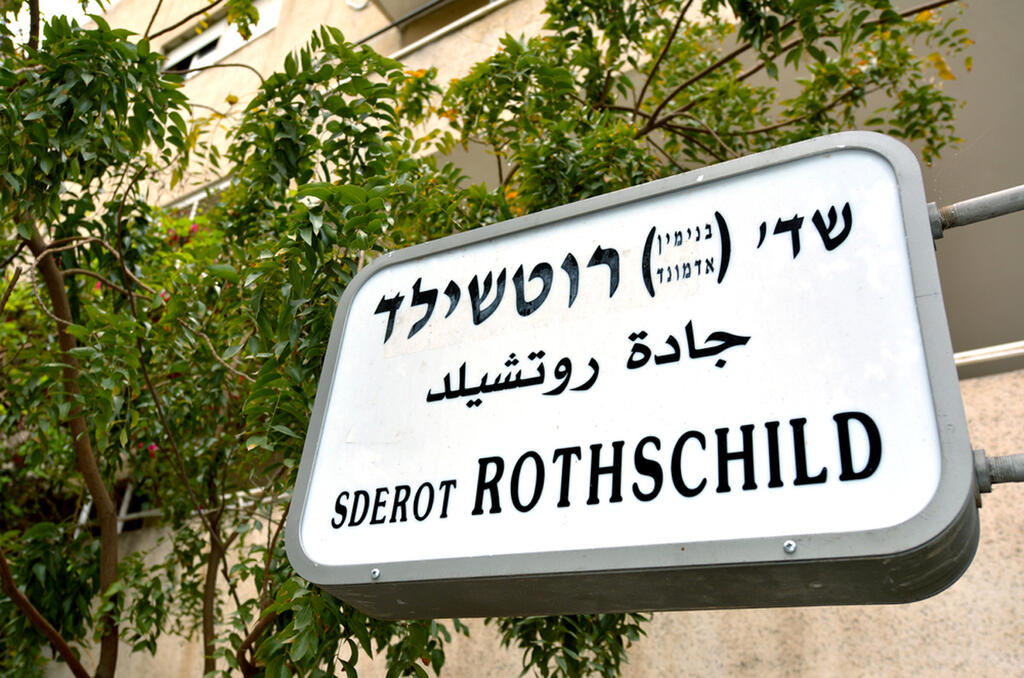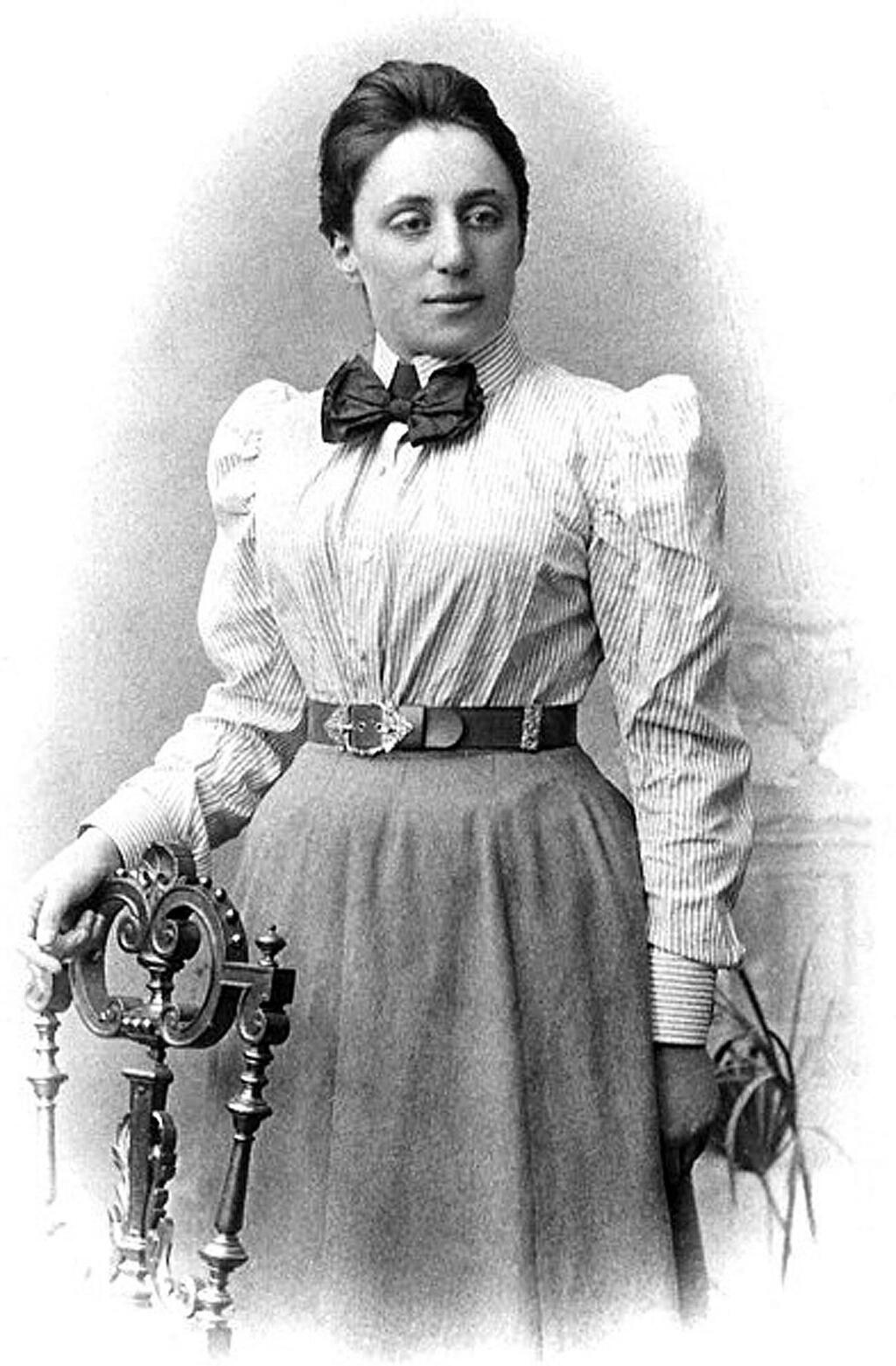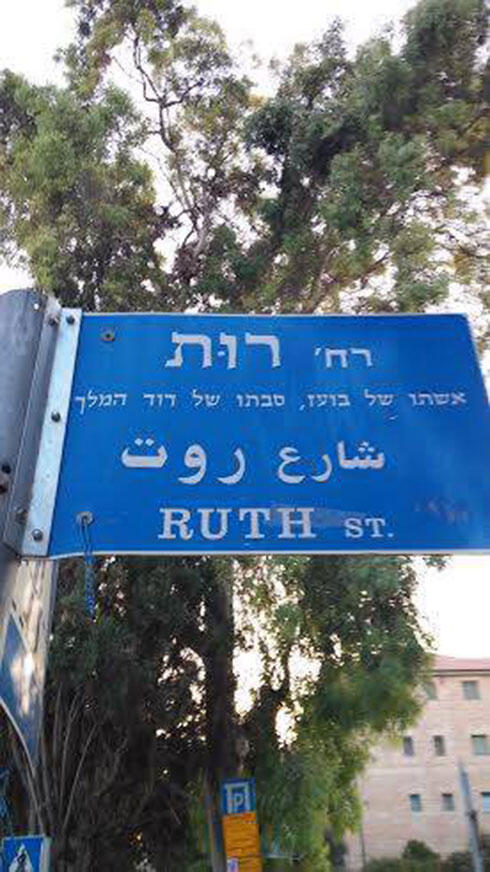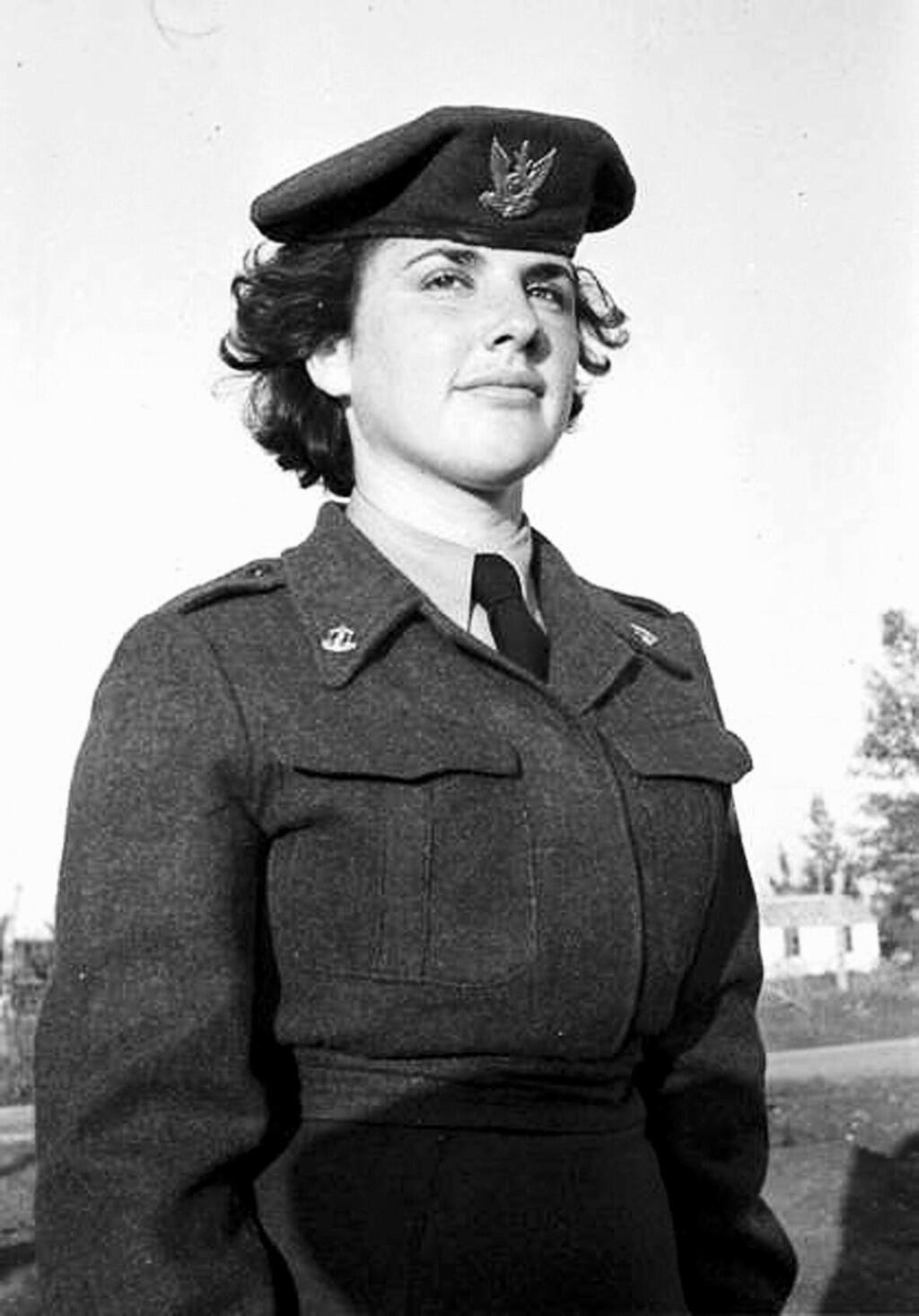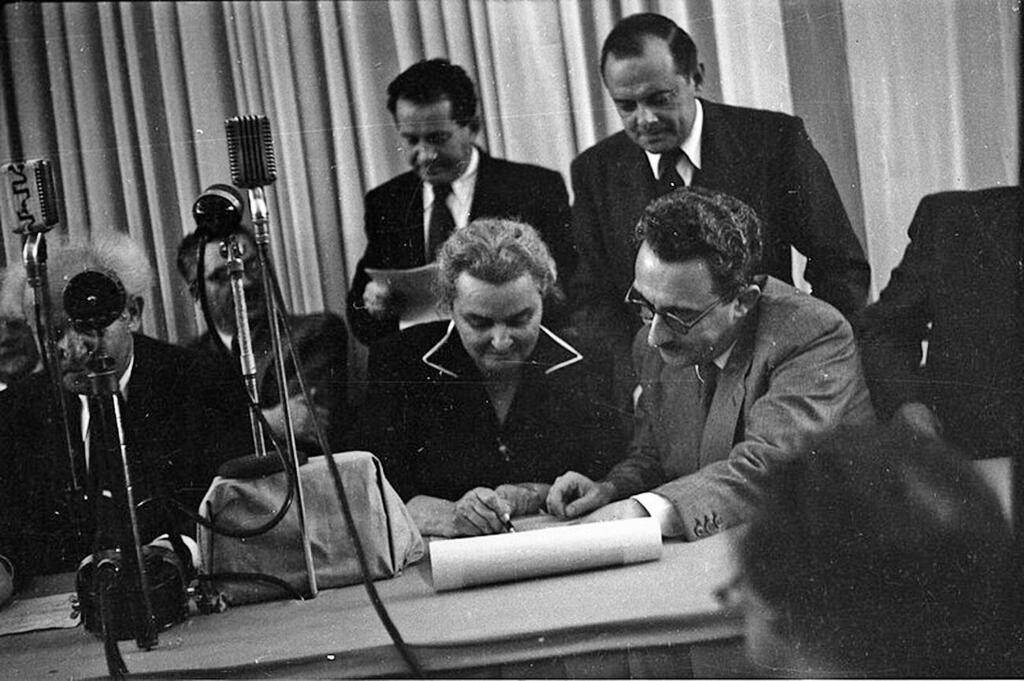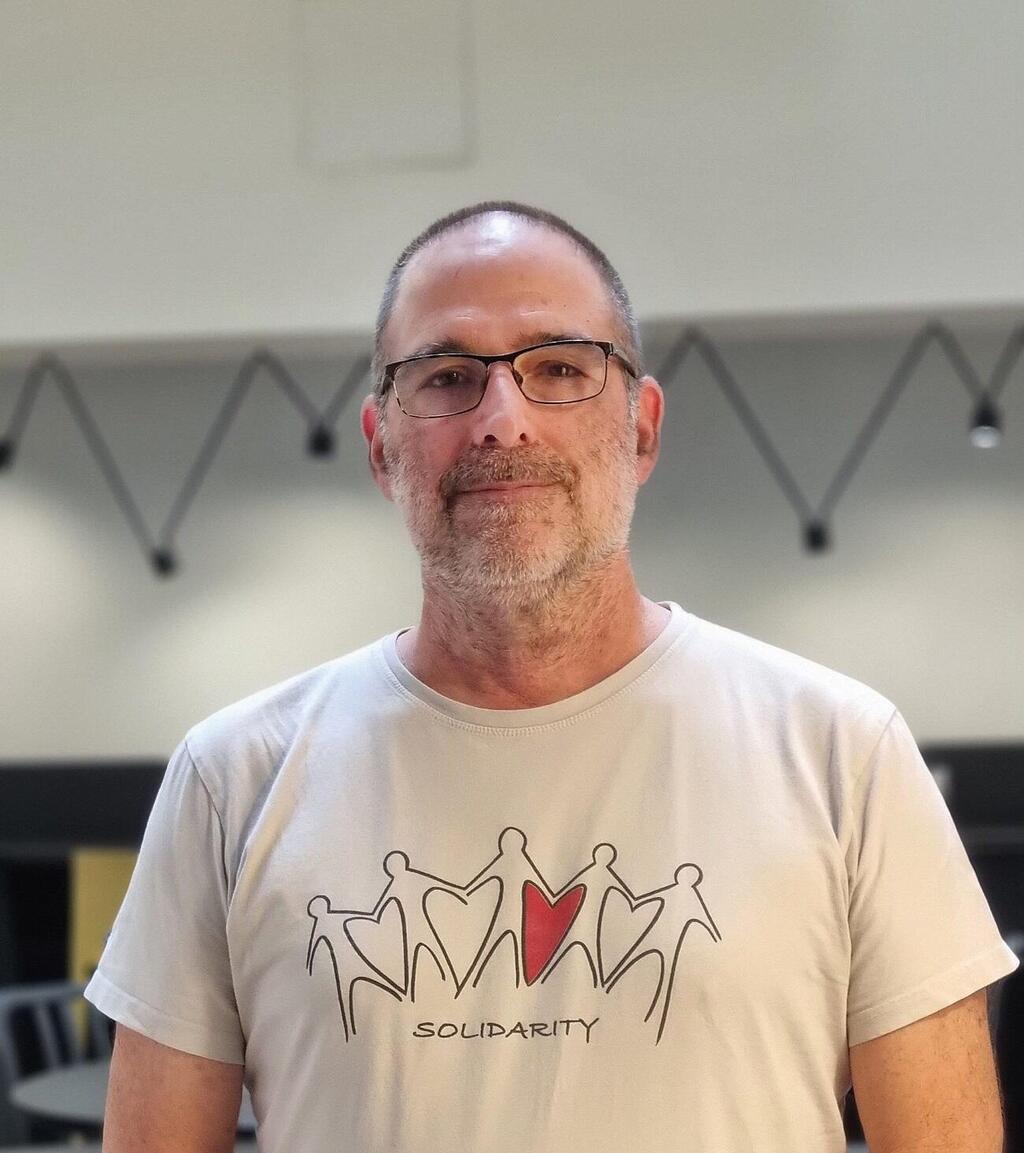For over four months, almost every Saturday thousands of women have been marching down Kaplan Street in Tel Aviv to protest against the government's judicial overhaul and the potential implications for women's rights.
Read More:
They may be making their way to the protest via Maklef Street, Leonardo da Vinci Street, or Ibn Gabirol Street. Regardless, the demonstrators shouting against the return to the dark days of hiding women away from public life, are now passing through streets named after men.
Supporters of the reform movement also participated in a massive rally in Jerusalem last month. Some of the women protesting declared themselves "daughters of a king", opposing Tel Aviv's "handmaids’ march," based on the dystopian novel The Handmaid’s Tale.
But in Jerusalem, they also marched down Kaplan Street, arriving via Ruppin Road, Ben Tsvi Boulevard, or Rothschild Street. Again, all streets named after men.
This is no coincidence. A comprehensive review conducted by volunteers from the civic organization "Gender Equality in Street Names," led by Eden Fuchs, found that in all 197 towns and cities surveyed in Israel, streets named after women are a minority - often by a significant margin. In fact, the review found that on average, the ratio is one in ten: for every ten streets named after a man, there is only one named after a woman.
Diving deeper into the data, the picture becomes clearer. In all major cities, the proportion of streets named after women is very low compared to those named after men.
"The street is a kind of textbook - a history textbook," says Dr. Tal Nitzan
In Haifa, only ten percent of all streets are named after women. In Jerusalem, it’s also about ten percent. In Tel Aviv-Yafo, the figure stands at only about five percent. This is a proportion not far from that of the Haredi city of Bnei Brak, with four percent. This phenomenon is also replicated in other major cities such as Netanya, Be'er Sheva, Ashdod, Ashkelon, and more.
In fact, the only place in the country where there is equality between the number of streets named after women and those named after men is Mazkeret Batya. Only one town in an entire country in which women make up at least half of the population.
This is not just a symbolic matter, but rather one of constructing actual reality, particularly for our sons and daughters. "The street is a kind of textbook - a history textbook," says Dr. Tal Nitzan, coordinator of the Sophie Davis Forum on Gender, Conflict Resolution and Peace at the Hebrew University of Jerusalem.
"Our learning is organic, it's about the things we encounter every day. If I walked down Emmy Noether Street, for example, I would ask who she was. And if she appeared in my history or math book, the knowledge would be ingrained. But our history is based on male history, and the street perpetuates that, because the street tells us the true story of the prophets of Israel, Hovevei Zion, and heroes of Israel's wars.
The way we learn about history is very limited, and also limiting. It's self-replicating. We continue to represent Israeli history through the insights of the 1950s. Even if we now know that it's important to remember Ofra Haza and Vicki Shiran, the public space allows us to give them a side street in south Tel Aviv that very few people pass through. Not like men, whose names are established on central streets."
Thus, every girl will know Albert Einstein, whose name graces many streets throughout Israel. But only the children of Kibbutz Zikim, walking down the pathway named after her, will recognize Emmy Noether, a revolutionary Jewish mathematician who became an admired scientific icon.
A political struggle
Here's a small example of how this process works: In every municipality in Israel, there is supposed to be a "Naming Committee." The committee creates a list of suggestions for naming streets, squares, bridges, promenades, etc.
Sometimes the local authority issues a call to residents to suggest appropriate names for commemoration. The committee passes on its recommendations to the municipal council, where every name is discussed, and a decision is made on whether to approve or reject it. These meetings often generate a political debate over the names.
In September 2020, Or Abu, director of the Task Force on Human Trafficking and Prostitution, stumbled upon a small piece of news in the city of Ashkelon where she was living at the time.
"The Naming Committee has decided: new streets and squares named after people who left their mark." Abu was shocked: "Out of 19 names, only three were women. They published the list like they're selling tomatoes and cucumbers in the marketplace. I don't understand, how can you not be ashamed to publish a list like this when there are only three women on it? Did only men leave their mark on the city?"
"‘Are you serious?’ I asked them. Is Cabernet Sauvignon more important than a woman who founded an organization that benefits the public? It's so frustrating. Women are internalizing the oppression themselves. "
Abu and her colleagues decided to go on a public advocacy campaign. "We proposed the names of dozens of women and applied pressure. What amazed me was that there are female council members, a female deputy mayor, and none of them thought that something was wrong."
The outcry they raised began to have an impact, and the municipality issued a call to residents to suggest names of women.
Abu says: "Many families had no idea they could commemorate their loved ones. For example, the family of Dr. Adi Ran Cohen, a specialist in women's health and obstetrics, well-known and highly respected in the city, the beautiful face of Ashkelon. Today there is a street named after her."
Or, more accurately, a short lane is named after Dr. Cohen, which connects the city’s Tappuz (Orange) Street and Hadarim (Citrus) Street. And this is an important point regarding the struggle for naming streets after women: it is not enough that they are competing against male names, they are also competing against streets named after trees, numbers, flowers, rivers, fruits, and what have you.
Abu says: "When I was in contact with council members on the Naming Committee, they tried to explain to me that there are many names that are not up for consideration. For example, in the new Ir Hayain (Wine City) neighborhood, streets will carry wine names. ‘Are you serious?’ I asked them. Is Cabernet Sauvignon more important than a woman who founded an organization that benefits the public? It's so frustrating. Women are internalizing the oppression themselves. What are you explaining to me? You should be on the right side of history with me."
And so, in Ashkelon, which according to the survey has 1,024 streets, over half of the street names are not named after individuals. And among those that are named after individuals? 368 streets are named after men, and only 45 streets are named after women, only 11 percent of the streets named after individuals. And this is still a city whose situation is relatively good regarding this issue. Relatively.
About ten miles to the north, in Ashdod, there are fewer streets, 683, but the situation is similar: 13% of the streets named after individuals are named after women.
Ahuva Yitzhak-Amram, the advisor for women's affairs to Mayor Yechiel Lasry, is proud to have succeeded in promoting the establishment of "the only square in the country in honor of women, Eshet Chayil (Woman of Valor) Square.
"It’s a name that was chosen in a survey involving hundreds of women in the city, and it embodies all the multifaceted feminine traits – strength, courage, daring, abilities, and capabilities," says Amram. "The square is meant to give honor to all women in whatever they are, but the road is still long."
Yitzhak Amram initiated a public appeal and asked all residents to suggest names for streets after women. "We received many names of inspiring women. We sat in the committee and chose, with preliminary approval, 15 names of heroines of war, women who contributed to the city. A meeting was supposed to be held in the committee to approve the names recently, but unfortunately, it was postponed."
To when?
"There's no date yet. We have to set up one. But how do they say? Every change begins with a single step."
Men. Men everywhere
As mentioned, according to the "Gender Equality in Street Names" examination, the only community in Israel where there is gender equality in street names is Mazkeret Batya. Forty-six percent of the streets named after individuals are named after women. This also happened after a not-so-easy struggle, which teaches us how long the road is.
In Mazkeret Batya, a local council that developed from a small colony, there was not even one street named after a woman until a decade ago. In 2012, when a large new neighborhood was established, residents requested to amend the situation. The entire complex was intended to be named Eshet Chayil Neighborhood, the main street was supposed to be called Haimahot (The Mothers) Street, and all streets were named after trailblazing women.
Sounds nice and all, but then politics entered the picture. "After everything was already approved, due to political considerations, they changed the name of the main street and named it after the former head of the council, Rafael Suissa Boulevard, and replaced the Eshet Chayil neighborhood with Bar-Lev neighborhood, named after IDF Chief of Staff Haim Bar-Lev," the residents wrote angrily in a letter submitted to council leaders.
The protest and public outcry didn't help. The main street, which runs through the Bar-Lev neighborhood, passing through Ruth and Naomi squares, glorifies the name of Suissa - while he is still alive. "The street won't be 'named after' him, because he is still alive, but in honor of him," said Meir Dahan, Suissa’s successor who made the decision.
Current council head Gaby Gaon rightfully boasts about gender equality in street names in his community. "In a community established by 11 ultra-Orthodox Jews - 65 years before the establishment of the state - a very liberal community has emerged," says Gaon.
"The decision to honor women is beautiful and respectful. Originally, the neighborhood was named Eshet Chayil, but in reality, it is called Bar-Lev. The move from 2012 is what created equality. There is now a preliminary plan to establish another neighborhood - and we will strive to make the street names 50:50, equally named after women and men."
Now meet Haya Rosenthal-Juvalio. She was a brave fighter in the battles for the defense and liberation of Jerusalem during the War of Independence, and commanded Platoon D in Battalion 205.
Two hundred female soldiers of the platoon were stationed at positions in Abu Tor, Mount Zion, and Rachel's Tomb. "Haya passed between them, under fire, throughout the war. In photographs from the first parade in Jerusalem, she can be seen leading her soldiers. This platoon significantly contributed to the victory in the War of Independence in the capital," it was written in a proposal to the Jerusalem Naming Committee, discussing whether to name a street after her.
In Jerusalem, there are 4,337 streets. Only 217 of them are currently named after women. How many are named after men? 1,950 streets. As mentioned, in the capital of Israel, only about 10 percent of the streets are named after women. Haya Rosenthal-Juvalio’s name could have certainly appeared on a street sign in the city, symbolizing women's contribution to the struggle for its liberation.
It is highly probable that if this had happened, many more people would know who she is, and she might have served as an inspiration to young women even today. But the Naming Committee determined that "she has no significant unique contribution to the city."
The meeting in which the name of the courageous female fighter came up was actually very positive: only women's names were discussed. Twenty-three names were raised, out of which ten women were chosen. Why so few?
"We sat down with the municipality secretary and the naming department secretaries and held a professional meeting," recounts Moran Shmouelof, chair of the Forum for Promotion of Gender Equality, who, together with Laura Wharton, who holds the portfolio for promoting gender equality in the Jerusalem municipality, and other activists, tried to advance the issue.
"The municipality secretary told us, 'I have a thousand places for commemoration, not just streets, but also squares, alleys, walls, gardens.' I said, 'Okay, give us 50.' He told me, 'I'll give you 20.' I said to him, 'This should be 20 women every year.' I thought it was ridiculous. He said, 'What can I do if they don't pass the committee?'
I answered: 'Of course, in discussions in the Naming Committee, women's names are also considered, but they are not chosen because they are always up against men's names, and the result is known in advance because the selectors are usually men. Let's put a woman for every woman.' That's how we managed to set up a meeting in which we only discussed women's names."
How did the municipality react to the special session you initiated?
Wharton says, "The mayor, the municipality, the women, and the pluralistic factions of the city council - supported us. Of course, there are people who think that women should not be highlighted at all; far-right elements who do not want to see women in the public space, in street names, or in advertisements. In the city council, out of 61 council members, there are only six women, so the representation of women in the city council also affects the issue of street names."
Erased from public spaces
It all began with a course on privilege taught by Dr. Tal Nitzan. "I gave my students an assignment: to describe what they do on a daily basis and write down the streets they pass through," she says.
"In the lesson, we looked at who are the people commemorated on these streets. We found that most of us live our lives in streets named only after men or in the general name of masculine actions such as 'fighters', 'conquerors', and 'founders'. In other words, the public space not only does not appreciate women - it also does not appreciate what is perceived as 'feminine'. When we checked who the men commemorated were, we found very narrow circles of those mentioned."
Which circles?
"We've found that most of them were Ashkenazi Jewish men."
Perhaps someone may tell you that during that time there were not enough worthy women.
"There certainly were, but either they were excluded from the story, or they were counted together with their husbands, or they simply disappeared. Like Rachel Kagan, who is the second woman to sign the Declaration of Independence and none of us knows who she is.
She did not sign the declaration for nothing. She was a very significant woman, but somehow she was not counted. And there are other problems. In Jerusalem, for example, there is a street called Hamalach Halavan (The Angel in White). It’s a reference to a woman who was a nurse, but we do not know that this is a woman and her story."
"The Angel in White" refers to Esther Arditi an Air Force medic who jumped into a burning plane that crashed in 1954 and rescued the pilot and navigator from it. She was awarded the Medal of Distinguished Service, the only female soldier in the history of the IDF to receive such an award.
If the street was named "Esther Arditi," her heroic story might have been known and fixed in the Israeli canon. But someone chose to call this street "The Angel in White."
Dr. Nitzan says, "There is a confusing game. Even when women are commemorated, they are not really commemorated. Our goal is to empower women, to create a public space where we are counted, and where men and boys will also walk on Emmy Noether Street and know that she was the most important female mathematician in the world. They will know that women can be great mathematicians, not as they are taught.
If we have a Harof’ot (the Hebrew female form of “Doctors”) Street or a Hatayasot (the Hebrew female form of “Pilots”) Street, it will be clear that women can also be doctors and pilots.
We are walking in the living museum of our history, and currently, the museum we are walking in perpetuity in the perceptions of the previous century, which excluded women. The fact that there are often more streets named after asparagus than women reinforces the marginalization of women in the story we tell ourselves. In a community where 50% are men, 30% are fruits and flowers, and 20% are women, it is sad. We are less important to our story than Irises."
Male grip on power
Whoever passed by Habima Theater in central Tel Aviv in recent months, encountered a sign on one of the tall lighting columns: "Eyal Ofer Pavilion", pointing towards the Tel Aviv Museum of Art. In one moment of a combination of interests, power, honor, and strength, the name of Helena Rubinstein was erased from the sign. Thus, in progressive Tel Aviv, where there is already a commemoration for a woman, they erase her.
Just as they erased the name of Yehudit from "Yehudit Bridge," which was named after Yehudit Montefiore, and became "Yitzhak Navon Bridge." In a city that boasts of its liberalism, there are only 64 streets named after women, compared to 1,232 named after men, meaning only five percent of the streets named after individuals commemorate women.
"457 streets in Tel Aviv carry a number instead of a name - which we can already replace with names of women tomorrow," says attorney Miki Roitman, a social activist who is at the forefront of those petitioning against the Tel Aviv municipality for erasing the name of Helena Rubinstein from the museum's sign.
Roitman encountered the issue of street names when she worked as an advisor to MK Oded Forer, during his tenure as chair of the Committee on the Status of Women and Gender Equality. The wake-up call came in Beit Shemesh.
"In the women's health center, ultra-Orthodox Jews would constantly erase the word 'woman'," says Roitman. "Mayor Aliza Bloch decided to fight against this phenomenon and chose to name streets after women and men who contributed to the establishment of the state at the beginning of Zionism.
She chose to name one of the streets after Sarah Aharonson (a Jewish spy who worked for the British in Ottoman-ruled Palestine during World War I) - but the Council decided that the street will be called 'Aharonson' without the name of the woman, so as not to offend anyone".
Even some male-named streets received similar treatment - but for their first name. For example, While Yoni Netanyahu Street was changed to Yonatan Street, Anne Frank Street was changed to Frank Street.
One day, Roitman encountered a sign near her home that announced that the Helena Rubinstein House Pavilion henceforth be named after the business magnate and philanthropist Eil Ofer.
Upon investigating the reasons behind this change, she discovered that Ofer had donated five million shekels, resulting in the building being named after him and Rubinstein's name being erased. Roitman launched a battle, while also exploring the commemoration rates in the city.
Parallel to the findings that she uncovered about Tel Aviv, Roitman became aware of the initiative and data collected by Eden Fuchs from Gender Equality in Street Names.
Councilwoman Tzipi Brand thinks that the Rubinstein affair is a scandal. "To erase a woman's name from the public sphere in such a blatant manner, and especially from such an iconic place, is a political decision, lacking sensitivity, and precisely in a period when women's recognition is required in all areas of management and public space. The ease with which this was done reflects a broader problem beyond the mere name change."
Which is?
"When administration is male-dominated, and when the city's leadership is made up exclusively of men - decisions are still being made from a male perspective, even on a subconscious level. Men give a lot of points to generals, ask to commemorate another general, and most people think this way. In their opinion, a commander did more than someone who established entire branches in day-care centers, worked for children's education, and cared for those in need."
How do we fix that?
"In the last few years, as the chair of the committee for gender equality, I began leading a correction effort. The municipality, for example, started a campaign to name institutions after Yaffa Yarkoni and Shoshana Damari. There are many deserving women waiting in line, but until women hold key positions in politics, nothing will change. In the end, even without meaning to harm, you choose those who resemble you."
A power statement
Eden Fuchs, the head of the initiative mapping street names in Israel, got involved in the subject due to his daughter who studies gender studies in high school. One day, she returned home with a chart comparing male and female street names in three major cities. "It didn't leave me, so I decided to investigate it," he says.
What's your takeaway?
"Even if from now on they start naming all the new streets after women, it will take generations. To fix the terrible inequality, neutral street names need to be replaced with women's names.
Tel Aviv, for example, commemorates numbers 20 times more than it commemorates women. Other cities also commemorate trees, months, mountains, rivers, and precious stones. I contacted dozens of authorities, including all members of the council: now it is your responsibility to determine how it will look for future generations."
Fuchs is not the first to promote the initiative. Yael Sherer, director of the Lobby to Combat Sexual Violence, has been addressing the issue since 2013. It started when she heard about a municipal council discussing street names that decided to call a street after the commander of the Southern Command, "but they did not agree to name a street after Rebecca Sieff, who founded WIZO. It disgusted me. I started a thread in a Facebook group, and asked to bring up names of women worthy of commemoration."
Today, her team "Street of Her Own" collects a respectable list of women we should all know. Local authorities who join and request to name streets after women use the name database on the site.
Fuchs sees street names as "a resource for asserting power. This is something that generally patriarchal institutions want to preserve."
Is it possible?
"Yes, but it's not a simple step. It needs to be done in collaboration with the public and with sensitivity. It's radical, in the sense that it's kicking the patriarchy where it hurts. I heard a city councilman ask, 'Do important and worthy women even exist, like men?' or another who asked me, 'Are you the one who says we should replace street names with women's names?' in a dismissive tone. It took a lot of breaths to explain to him why it's important. It's kind of neutering, taking away this resource from men."


